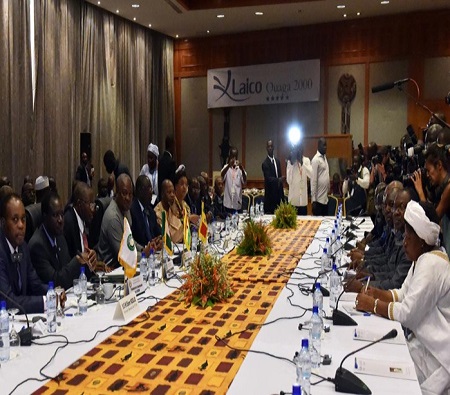
After tough negotiations and extensive debates, leaders of opposition political parties, civil society, religious bodies and traditional rulers approved on Sunday the final version of the draft transition charter.
 The text was to be submitted on Monday to the army, which took over control of the country after the resignation of President Blaise Compaoré, before the adoption of a single document summarizing the transition proposals and drawing the profile of the officials that will be at the helm of the country during the transition period.
The text was to be submitted on Monday to the army, which took over control of the country after the resignation of President Blaise Compaoré, before the adoption of a single document summarizing the transition proposals and drawing the profile of the officials that will be at the helm of the country during the transition period.
 The text was to be submitted on Monday to the army, which took over control of the country after the resignation of President Blaise Compaoré, before the adoption of a single document summarizing the transition proposals and drawing the profile of the officials that will be at the helm of the country during the transition period.
The text was to be submitted on Monday to the army, which took over control of the country after the resignation of President Blaise Compaoré, before the adoption of a single document summarizing the transition proposals and drawing the profile of the officials that will be at the helm of the country during the transition period.
The Charter specifically provides for a civilian interim president, the formation of a cabinet of 25 ministers that must take into consideration in its composition women, youth, trade unions and the Diaspora, and a transition Assembly of 90 deputies. It was decided that the members of the transition Assembly could run for the presidential and parliamentary elections scheduled for November 2015, while the president and the members of the transitional government will be excluded from the polls.
The document also proposes the creation of a National Reconciliation and Reforms Commission that will be entrusted with restoring and strengthening social cohesion and national unity.
President of Mauritania and chairman of the African Union, Mohamed Ould Abdelaziz, who visited Ouagadougou on Monday for talks with Lieutenant-Colonel Isaac Zida, current strongman of the country, said that the continental organization does not intend to sanction Burkina Faso.
The African Union (AU) will accompany Burkina Faso and will participate in the solution of the crisis, he said insisting that the solution will come from the people of the country.
